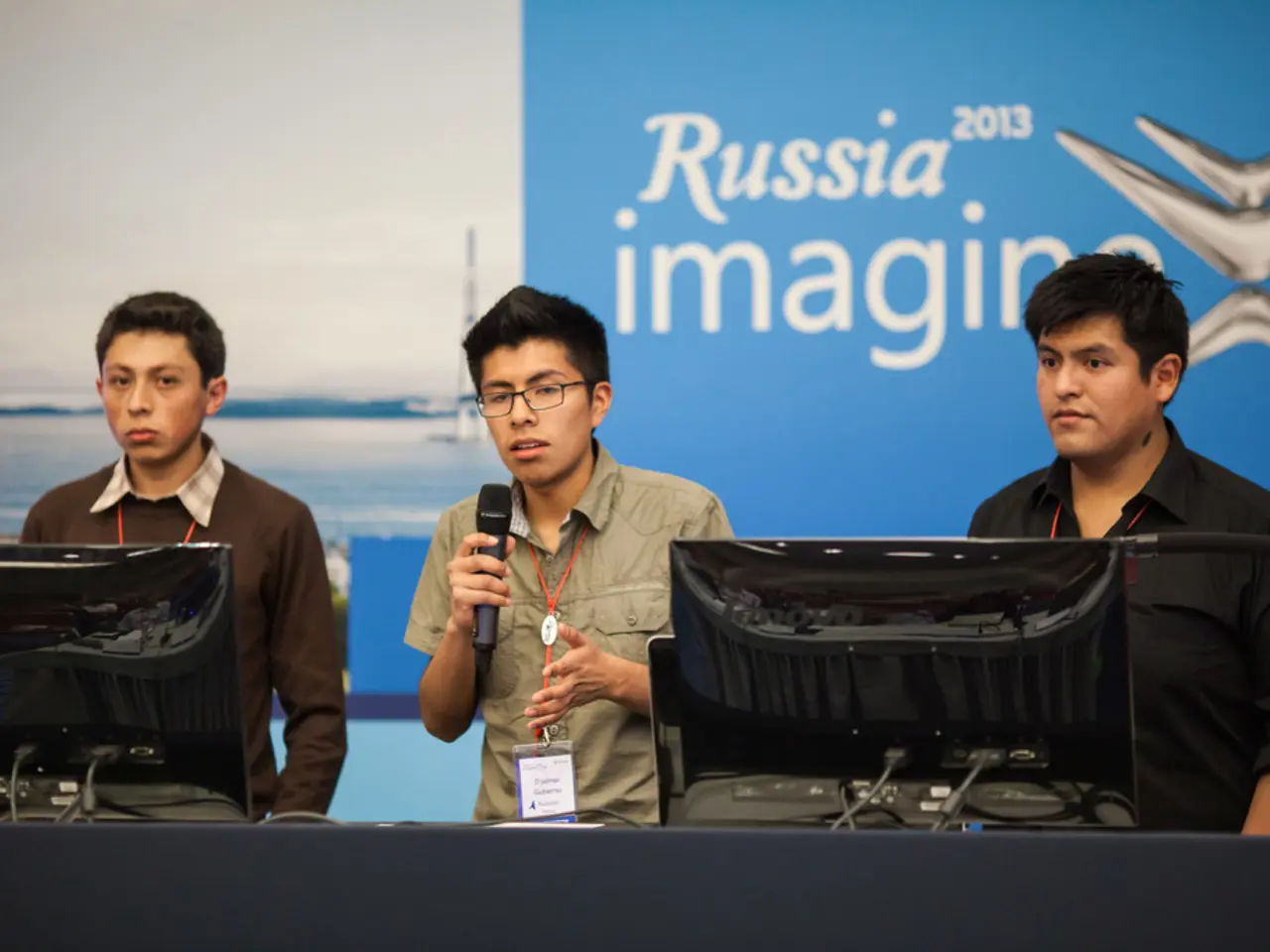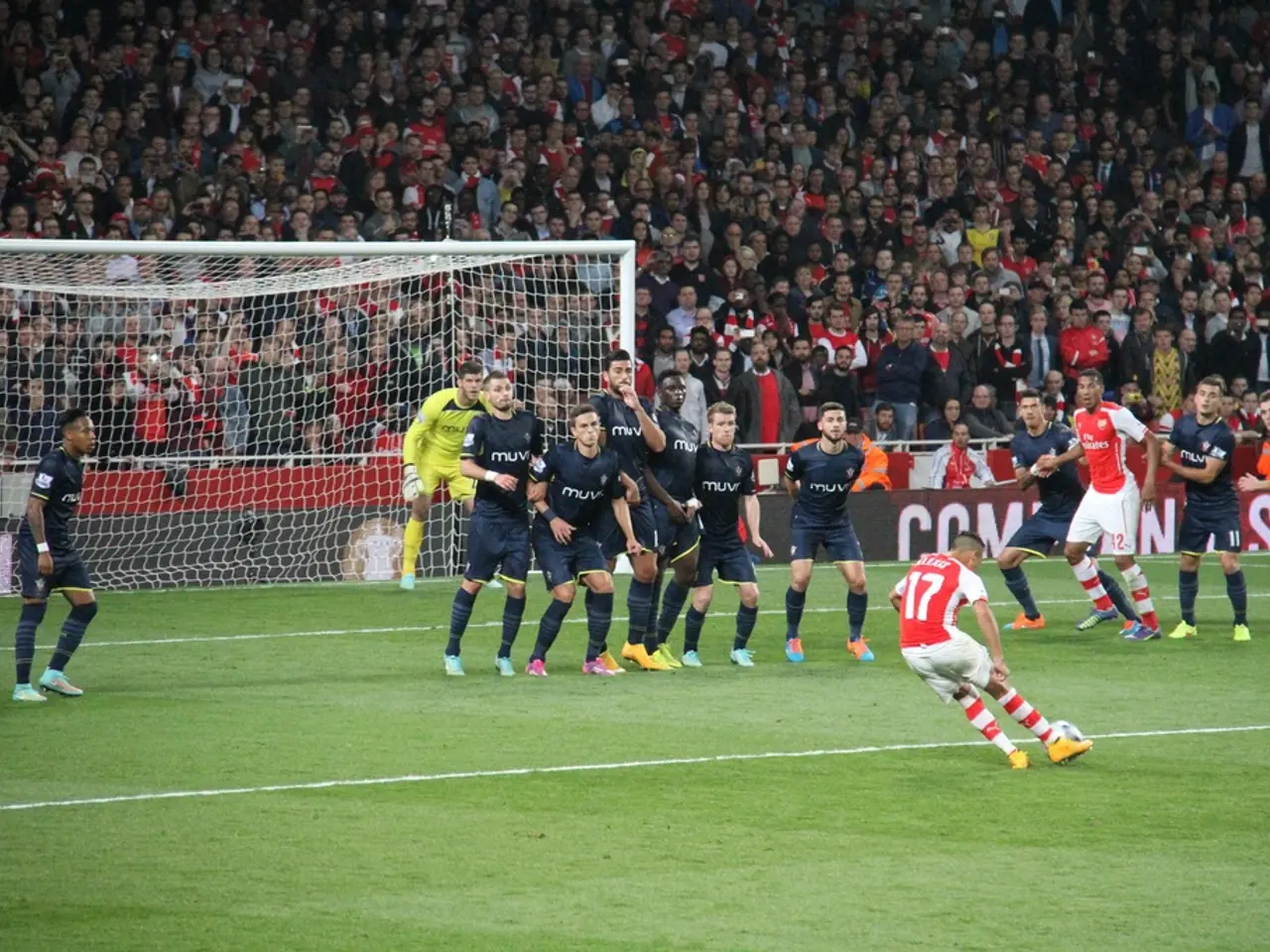Persistently, Russia Continues to Exert Pressure on Ukraine: Explanation Unveiled
In recent developments, Russian President Vladimir Putin has continued to refer to Ukraine as "Little Russia," a term that has sparked concerns about Moscow's intentions towards its neighbour. This renewed rhetoric comes amidst growing tensions between the two countries, tensions that have been brewing for over a decade.
Since the 2005 Orange Revolution, tensions have escalated between Ukraine and Russia. This pro-democracy movement, which was mirrored in Georgia's Rose Revolution, has been viewed as a threat by Russia. Putin, in his July article, expressed his displeasure at the collapse of the Soviet Union, describing it as "the greatest geopolitical catastrophe of the century."
Historically, Ukraine holds significant importance to Russia. The first Russian state, Kievan Rus, was established in Kiev over 12 centuries ago. Ukraine was deeply integrated into the Russian Empire and later the Soviet Union, serving as the second-most populous republic and a key provider of agricultural production, defense industries, and military assets. The 1654 Pereiaslav Agreement marked the early linkage of much of Ukraine to Russia, initiating processes of Russification and integration into the Russian sphere.
Geopolitically, Ukraine’s location between Russia and Europe makes it a crucial security and influence zone for Moscow. Russia views Ukraine as part of its historical heartland and sees Ukraine's Western integration efforts as threats to its national security and regional influence. The 2014 annexation of Crimea and support for separatists in eastern Ukraine underline Russia’s determination to maintain influence there and prevent Ukraine's full alignment with the West.
Economically, Ukraine's fertile land and industrial capacity hold strategic importance for Russia. Russia's efforts reflect concerns over losing a vital economic and military partner, while Ukraine’s westward orientation threatens Russia’s geopolitical buffer and influence in Eastern Europe.
Russia's aggressive policymaking in Ukraine is not a new phenomenon. Moscow's balancing act toward Ukraine had been to monitor political developments until the 2005 Orange Revolution. Since then, Russia has countered with aggressive policymaking wherever it feels under pressure, including Ukraine. This is evident in Putin's policy towards Ukraine, which mirrors Moscow's conduct in Georgia, backing anti-Kiev Russian separatists. In 2008, Russia attacked Georgia, a former Soviet republic, backing South Ossetians and Abkhazians who rebelled against Tbilisi's central authority.
Recently, Putin has deployed tens of thousands of troops across the Russia-Ukraine border, signaling another invasion could be on the way. This move has raised alarm bells in the West, with fears of a repeat of the 2014 annexation of Crimea. However, Putin wrote in his July article that he does not need Donbas, referring to eastern Ukraine. The true intentions of Russia remain unclear, but one thing is certain: Ukraine's significance to Russia, historically, geopolitically, and economically, makes it a hotbed for ongoing tension and potential conflict.
[1] Encyclopædia Britannica. (2021). Ukraine. https://www.britannica.com/place/Ukraine [2] Council on Foreign Relations. (2021). Ukraine. https://www.cfr.org/backgrounder/ukraine [3] The Guardian. (2014). Ukraine crisis: a brief history. https://www.theguardian.com/world/2014/mar/01/ukraine-crisis-a-brief-history [4] BBC News. (2014). Ukraine crisis: a timeline. https://www.bbc.com/news/world-europe-26230676
- The historical significance of Ukraine to Russia, as evidenced by the first Russian state being established in Kiev over 12 centuries ago, has underscored its importance in contemporary geopolitical and economic affairs.
- Beyond history, Ukraine's fertile land and industrial capacity hold strategic importance for Russia's economy, making its westward orientation a potential threat to Moscow's geopolitical buffer in Eastern Europe.
- Recent developments, such as Putin's renewed rhetoric referring to Ukraine as "Little Russia" and the deployment of troops across the Russia-Ukraine border, have raised concerns about Moscow's intentions towards its neighbor and sparked comparisons with Russia's aggressive policymaking in past conflicts, like the 2008 attack on Georgia.
- The ongoing tension between Ukraine and Russia has not only been fuelled by economic and geopolitical concerns, but also by the two nations' contrasting political affiliations and news narratives. This includes differences in their approaches to war-and-conflicts, domestic politics, and general news reporting.






